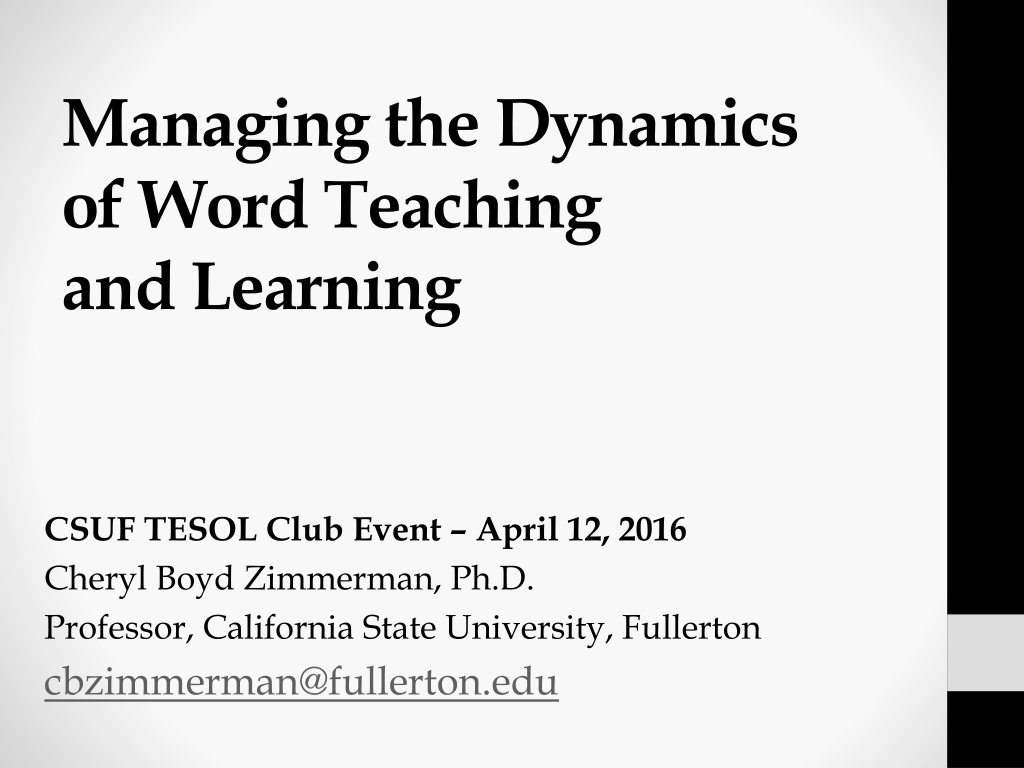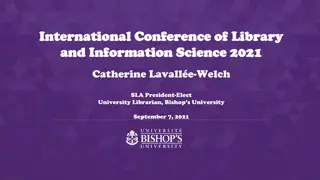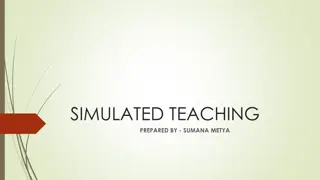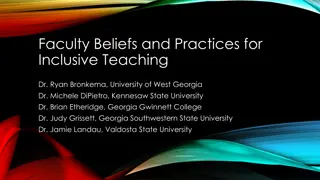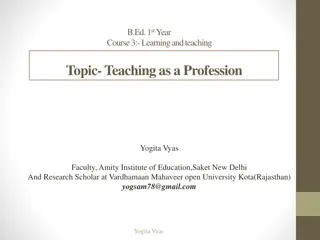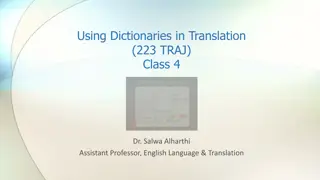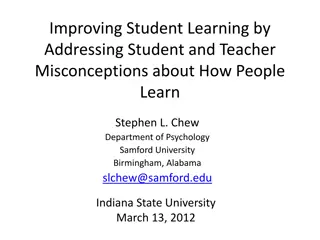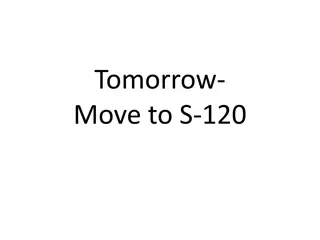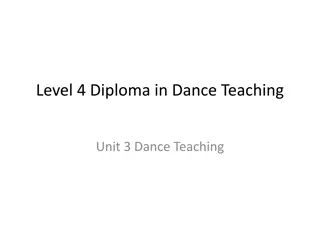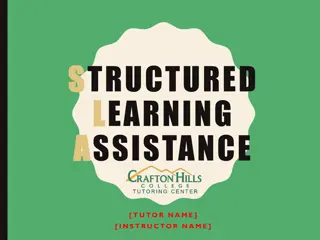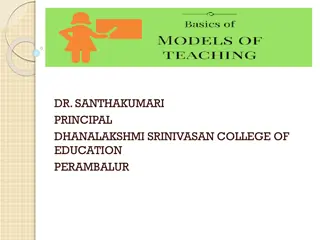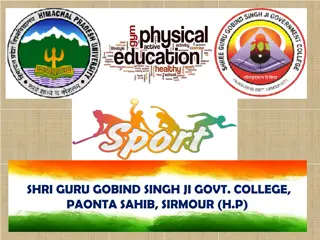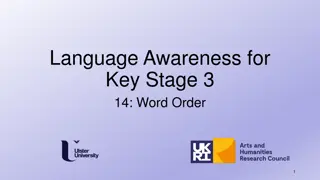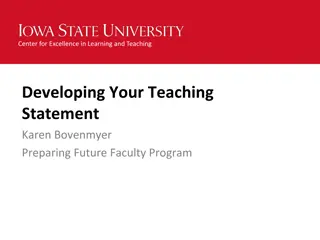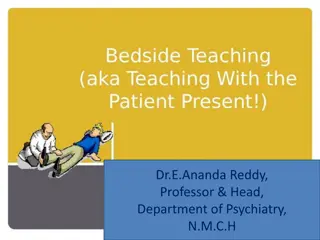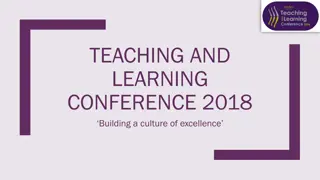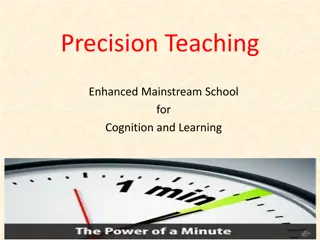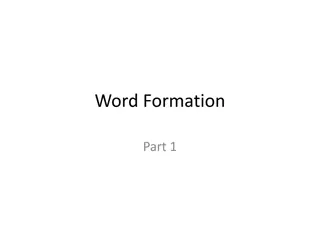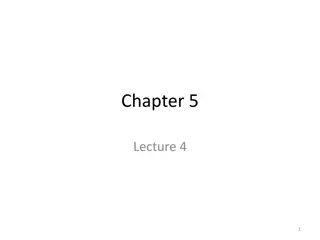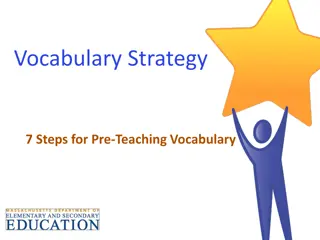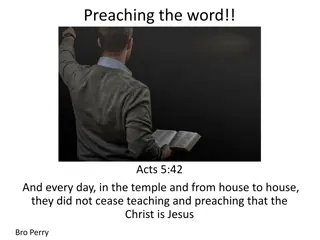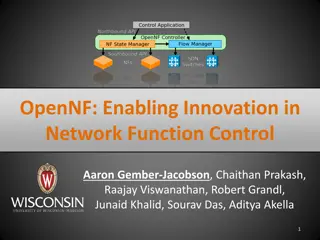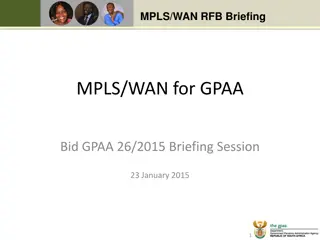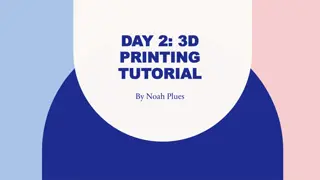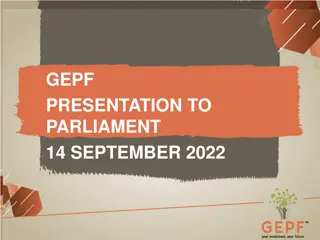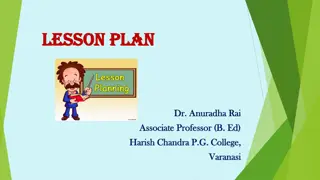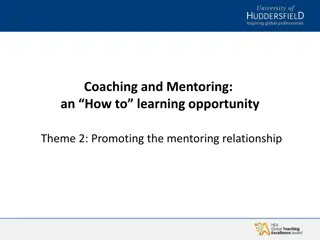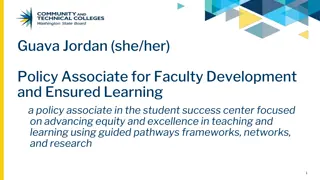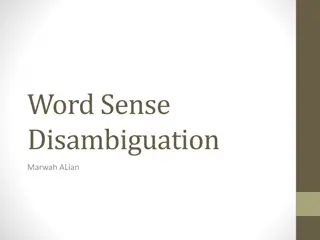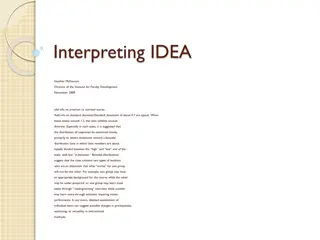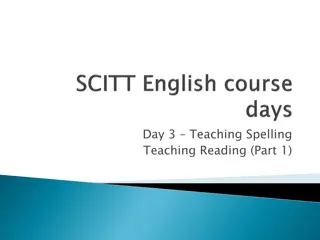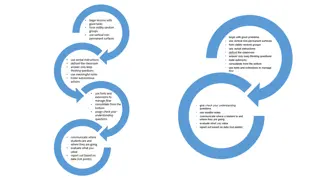Insights into Word Teaching and Learning Dynamics in SLA
Explore the nuances of word teaching and learning dynamics in Second Language Acquisition (SLA) through cognitive research, cognitive approaches, and the importance of word ownership for confidence in language proficiency. The role of socially-embedded approaches to SLA and strategies like repetition, explicit instruction, and comprehensible input are highlighted.
Download Presentation

Please find below an Image/Link to download the presentation.
The content on the website is provided AS IS for your information and personal use only. It may not be sold, licensed, or shared on other websites without obtaining consent from the author. Download presentation by click this link. If you encounter any issues during the download, it is possible that the publisher has removed the file from their server.
E N D
Presentation Transcript
Managing the Dynamics of Word Teaching and Learning CSUF TESOL Club Event April 12, 2016 Cheryl Boyd Zimmerman, Ph.D. Professor, California State University, Fullerton cbzimmerman@fullerton.edu
Whats Wrong here? I can t read out loud. My nose is constipated. I am diseased. The Taj Mahal is made of white marbles. Any kind of dopes at the school are prohibited.(A sign posted in a Vietnamese university
And here? We hope to disappear poverty from our planet. I woke up lately. (And My mother works hardly ). Anterior to now I was living in Korea. The volcano isn t working. He spilled his intestines to his therapist.
In fact, the amount of acceptable variation is limited. Macqueen, 2012, p. 16 the crux of the matter the heart of the matter *the nitty-gritty of the matter *the bottom line of the matter * the matter s crux
Cognitive Research Has Responded with Suggestions: Repetition Explicit Instruction Comprehensible Input Reading Word Learning Strategies Other?
A Cognitive Approach to Word Learning Does not Explain Everything Learners Need What else, besides this student s mental learning, is at work here?
As I began work on this assignment, I thought of the name of the course, and thought I had to use the word discourse. The word felt like an intruder in my mind displacing my word talk. I could not organize my thoughts around it. It was like a pebble thrown into a still pond disturbing the smooth water. It makes all the other words in my mind out of sync. When I realized that I was using too much time agonizing over how to write the paper, I sat down and tried to analyze my problem. I realized that in time I will own the word and feel comfortable using it, but until that time my own words were legitimate. . . .In my opinion it is the ownership of words that gives one confidence. I must want the word, enjoy the word and use the word to own it. When the new word becomes synonymous in my head as well as externally, then I can think with it. Cazden, 1992, p. 190, as cited in Angelil Carter, 2000, p. 35.
Lexical Insights from More Recent, Socially- Embedded Approaches To SLA
#1 Word Knowledge is a dynamic process rather than a static body of knowledge. Larsen-Freeman & Cameron, 2008; Macqueen, 2012
Recent Lexical Innovations Refudiate Pharmeceuticals Spear phishing Beer o clock Fat shame Other?
What do these words have in common? Bookmark Email Friend Tweet Trend Text
Word Use is Dynamic People use language not just to transfer ideas from head to head but to negotiate the kind of relationship they wish to have with their conversational partner. Pinker, 2007, p. 3
Practice: How might you say this to : your spouse, your boss, your child, a news reporter, etc. I am not being paid enough and I don t feel respected.
#2 Word use is more about making meaning than conforming to models. Larsen-Freeman, 2012 pp. 201-202
Complex Systems are understood when the same territory is visited again and again. 1. Read + YouTube video on the same topic 2. Narrow Reading (Krashen, 2004) 3. Project-based learning. Larsen-Freeman, 2015
Sentence Re-statement 1. Students read a sentence take enough time to understand the content well. 2. Put the sentence away. Each student restates the sentence, capturing the central meaning. 3. Discuss the similarities and differences in pairs or as a class. Discuss synonyms, phrases and meaning.
Sentence Re-statement Practice Contrary to the common assumption that families weren t sending girls to school for cultural reasons, it was discovered that poverty was the main roadblock
#3 Learning depends on the activity and initiative of the learner more than on inputs that are transmitted by a teacher or textbook. Macqueen, 2012, p. 278
Not All Words are Equal Like certain faces among the people I see on the street every day, certain words, for some reason, stand out, and leave an impression on me. Others remain in the background, negligible. Lahiri, 2016, p. 41
Personal Dictionaries Ideas from Jumpha Lahiri, 2016. pp. 41; 1. When reading, select words (or phrases) you want to know. 2. Underline them. 3. When finished reading, return to underlining. Record the ones you really want to know. 4. Look up meanings. Record. 5. Return to notebook often.
Visiting and Re-visiting 1. Ask a relevant question ( Describe an event that happened on your first day in the US. ). 2. Now answer the same question as if you are writing . . . for your best friend in your home country. . . .for a newspaper reporter in the US.
#4 Feedback is Information Giving
Characteristics of Information Giving 1. Focus on what the learner means. 2. Give reasons not rules. 3. Help learners discover, How else can we say this?
Stages of Feedback #1 A rigorous process. . . He saw all my gross mistakes. . . . . .he gave me a series of copious, punctilious notes ( Be careful not to use too many verbs as nouns. . . ). . . He gave me alternative words, he corrected (and rebuked )me . . . He pointed out, always patiently, how many times a wrong preposition screwed things up. Lahiri, p.187
#2 they explained what sort of impact my reflections had on them, and they always said the most important thing I needed to hear: keep going. . . .(they) understood my desire to express myself in a new language. . . .Working together, we made the final fixes. . .
Word Learning At first it s like a dancer, learning a new routine. . .she just mimics the steps and it feels alien. . . all energy is on what to do next. . .after awhile she begins to relax and to really dance. Angelil-Carter, 2000, p. 34
The Ownership of Words . . .In my opinion it is the ownership of words that gives one confidence. I must want the word, enjoy the word and use the word to own it. When the new word becomes synonymous in my head as well as externally, then I can think with it. Cazden, 1992, p. 190, as cited in Angelil Carter, 2000, p. 35.
